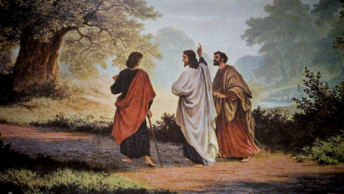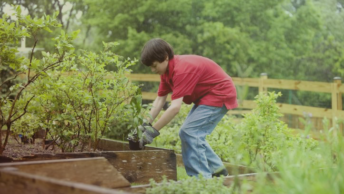All parables should give us long pauses; this one (Mt 21:33-43), on the 27th Sunday in Ordinary Time, is personalized and aimed at each one of us, directly, unequivocally. The first time it was told, Jesus directed it to the chief priests, elders of the people of Israel and the scribes. The details were such that they could not ignore it. They had to react to it.
When the chief priests and the Pharisees heard his parables, they knew that he was speaking about them. And although they were attempting to arrest him, they feared the crowds, for they regarded him as a prophet. (Cf. Matthew 21:45-46)
Now, what are the details that make this parable addressed to each one of us, directly, unequivocally?
(1) It is directed towards those who should know the relevant, pertinent answers which lead to Life eternal; those who have knowledge of what God wants of them; those who have been enjoying His mercy and grace for the longest time. That includes, of course, deacons, priests and bishops, religious, any leader of Catholic communities, but also all of you who consider yourselves practicing Catholics, because you have been exposed to God’s Word at least once a week and who are being sanctified by His Sacraments.
(2) It shows God’s intense disappointment with the responses that He received from us, at least several times in the course of our life and, in some extreme cases, embarrassingly too often. “What more was there to do for my vineyard that I had not done?”
(3) God expects us to give Him His produce; all of it. It is not Ours, but His; and He expects it all.
(4) We do not want to think of what would happen if we do not give God His produce; if we do not bear the good fruits to which He is entitled.
We shall consider these four points one by one.
Today, this parable is directed to us. Our parents, most likely, were the first ones to introduce us to the faith and to nurture it for the first years of our life. After that, we attended CCD classes. Every Sunday we heard God’s Word addressed to us and explained to us in the homily. Some of us were fortunate enough also to attend retreats, pilgrimages, or to have spiritual direction and read spiritual books.
If we keep in mind that God cannot be fed lame excuses, we are bound to admit that we had plenty of opportunities to know our faith and to practice it. Undoubtedly, this parable is for us.
As to the times in which God must have been saddened and disappointed in us, we have for sure serious difficulties in assessing that, because, over the years, we have developed numerous interests; we have busied ourselves in many other ways so that we might have disregarded countless opportunities to advance in grace and in the knowledge of our faith, and in performing acts of loving service to others.
Even now, chances are that our heart might be cluttered with many needless, trivial, idle matters that have all contributed to distracting us away from what is crucial for our salvation and have favored the scattering of our mind in many directions.
We ought to wonder, then, how many chances we will still be given to refocus on God as on the only source of Life, before we are called to render a detailed account of our performance on Judgment Day.
If we were to have trouble with appreciating God’s intense disappointment, we would have just to consider His emotional investment in each one of us. I am talking about God the Father allowing His only begotten Son Jesus to die, amid horrific torments, on a cross for each one of us. I am talking about the Father ignoring, for a while, His Son’s desperate cry: “My God, my God why have you abandoned me?” All this was endured by our Heavenly Father and by Jesus for all of us in our lukewarmness.
“What more was there to do for my vineyard that I had not done?”
And what is the produce that belongs to God and that we are supposed to deliver to Him? This question could seem pointless and misdirected by those who are routinely fooled by the devil into thinking that they are good enough before God because they spend a great deal of time in church and they fill their days with numerous prayers and devotions.
My dear friends in Christ, Satan is having a grand time, for sure, enjoying his success in convincing a number of devout people that they are entitled to classify some as “sinners” for whose conversion they pray daily. This is exactly what happened in the minds of those to whom Jesus addressed this parable the first time!
The chief priests, the elders, the scribes along with the Pharisees, made it quite clear that they were not sinners, nor that they should associate with sinners. They also objected, vehemently, with him for he sought out sinners, tax collectors and prostitutes; and that he associated with them and even ate with them!
Not much might have changed since. Nowadays too, some pious people live the delusion of not needing conversion, and so, they pray for the conversion of others, not their own. Thus, the devil succeeds with them as they risk becoming barren and unable to give God the produce that He expects also of them.
What is this produce that we owe God? The answer is found in today’s second reading (Phil 4:6-9): “…whatever is true, whatever is honorable, whatever is just, whatever is pure, whatever is lovely, whatever is gracious…”
And it is mentioned also in a famous passage from St. Paul: “love, joy, peace, patience, kindness, generosity, and faithfulness…” (Cf. Galatians 5:22)
Since we cannot even entertain the thought of what would happen to us if we do not give God the produce that He demands, we are well advised, this very day, to check with brutal honesty the level and the quality of our love, joy, peace, patience, kindness, generosity and faithfulness. Then, in whatever fruit we find poor quality or scarcity of, we must resolve in earnest to work together with God’s Word and His grace to reach the level and the quality pleasing to Him and which is beneficial to the whole Church.








